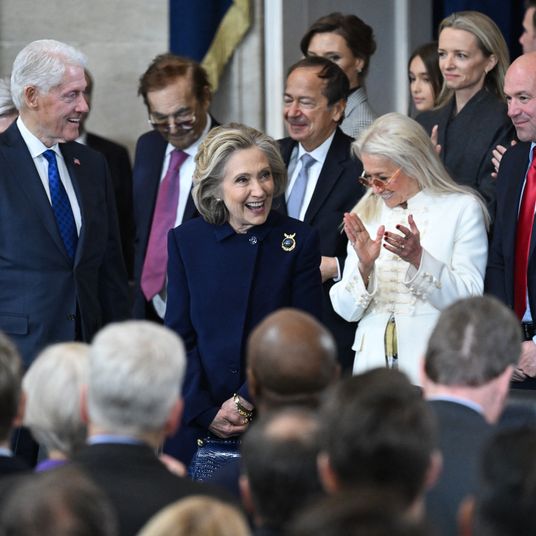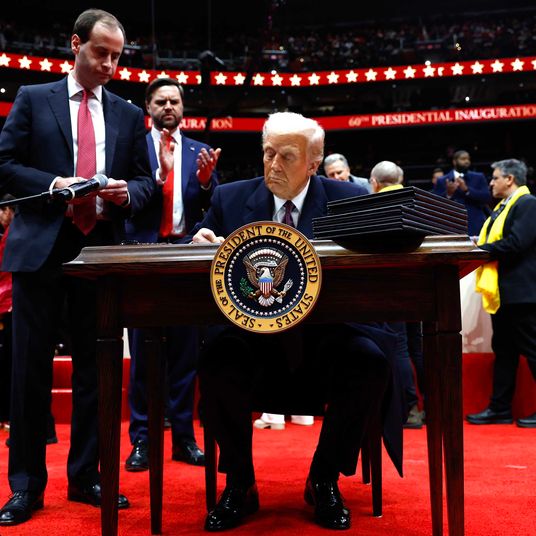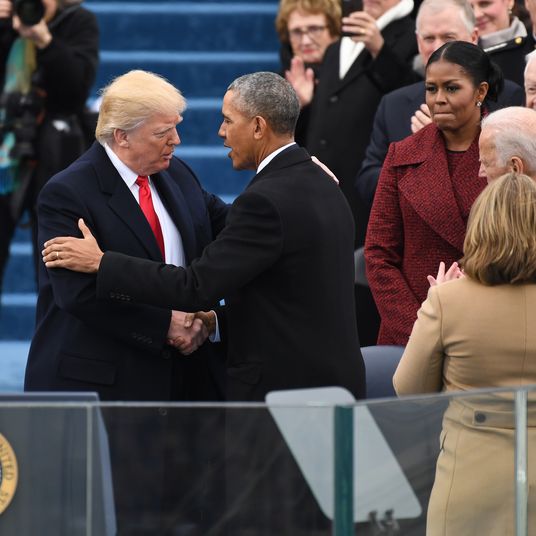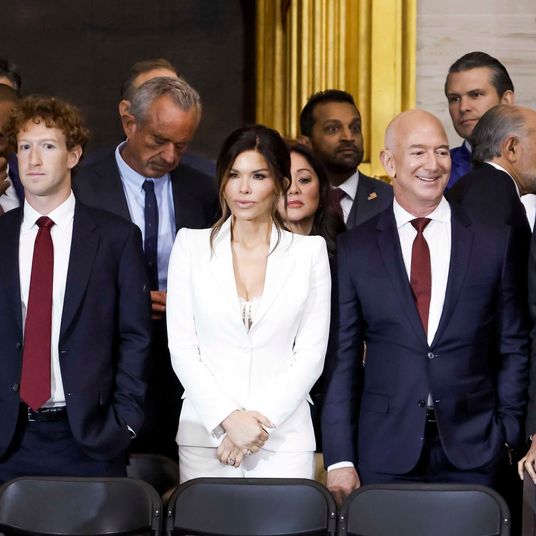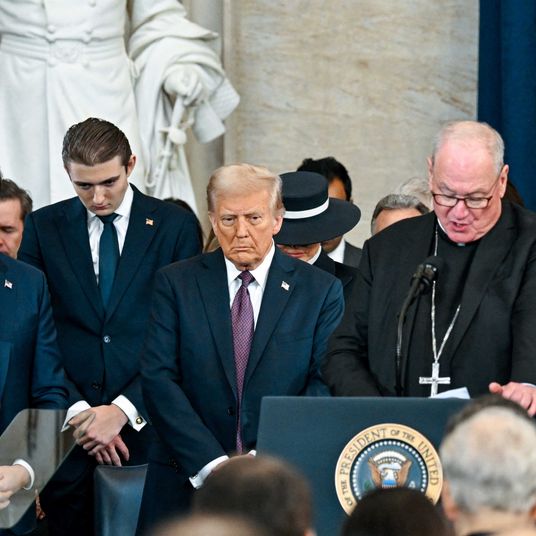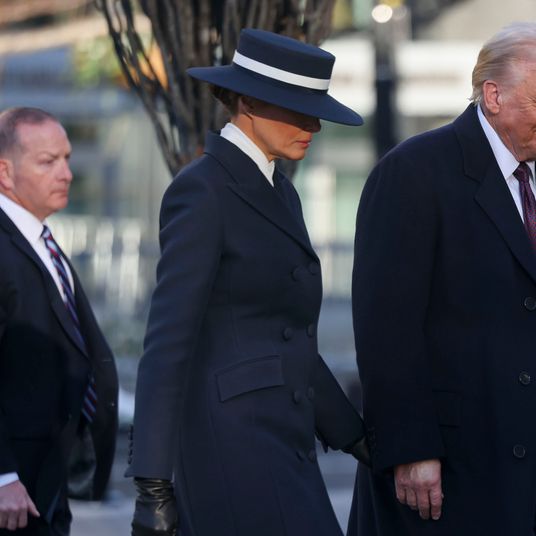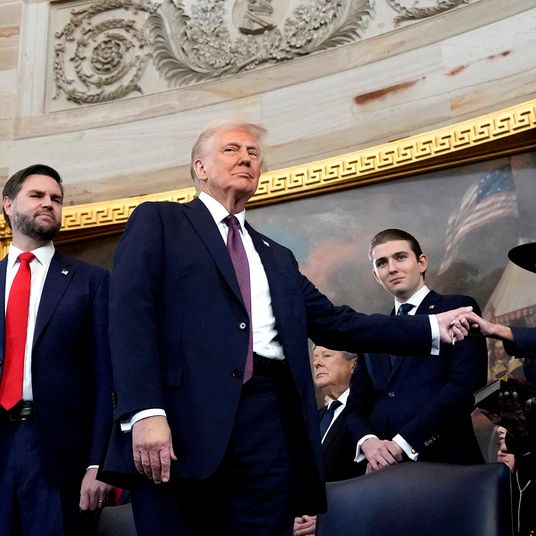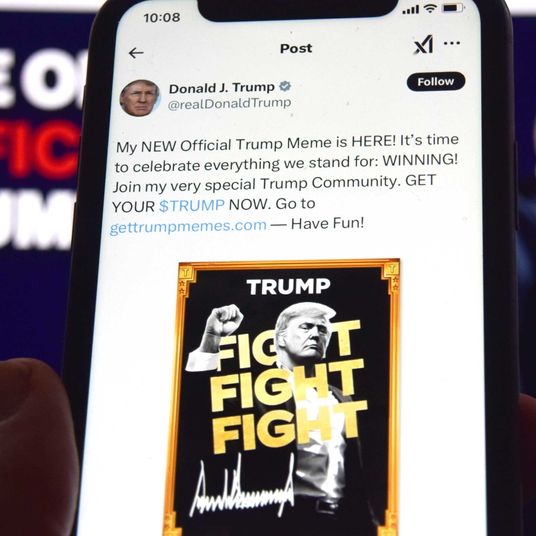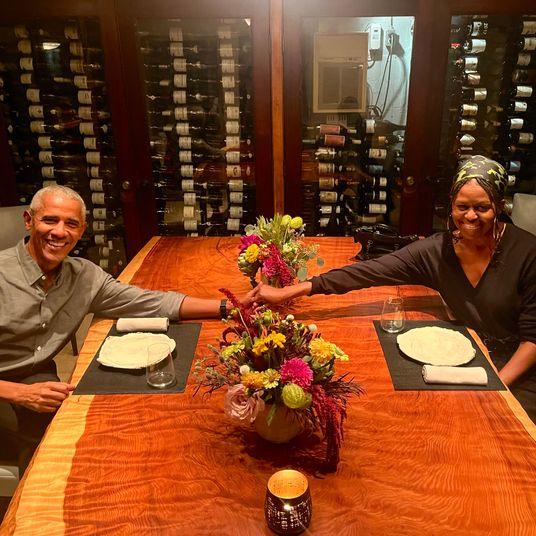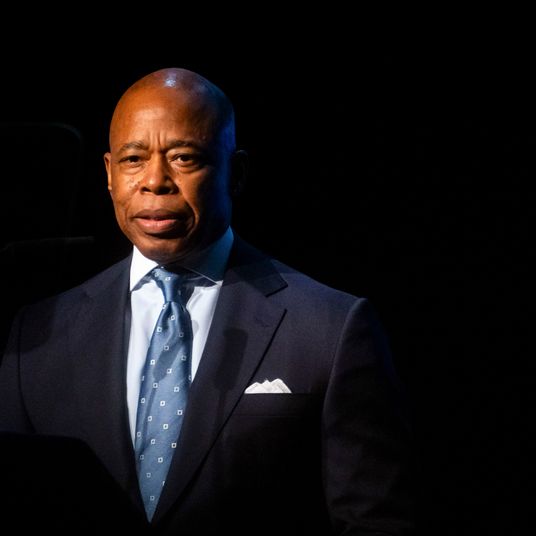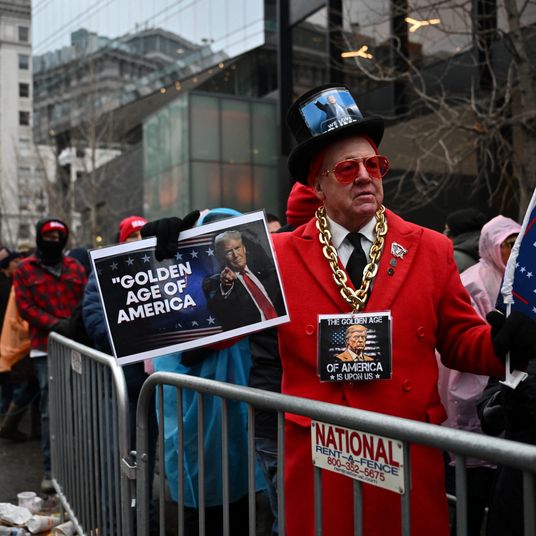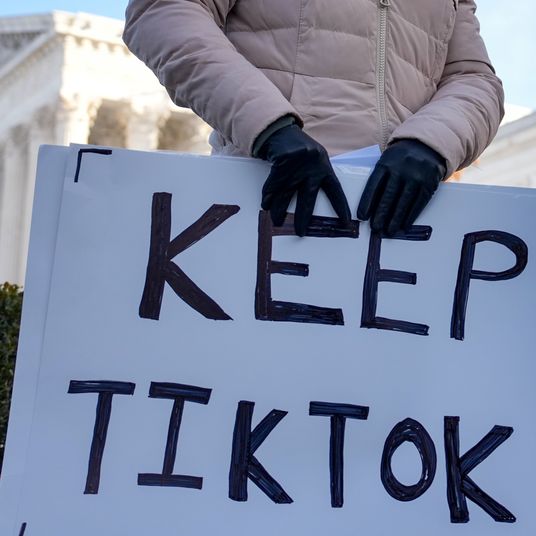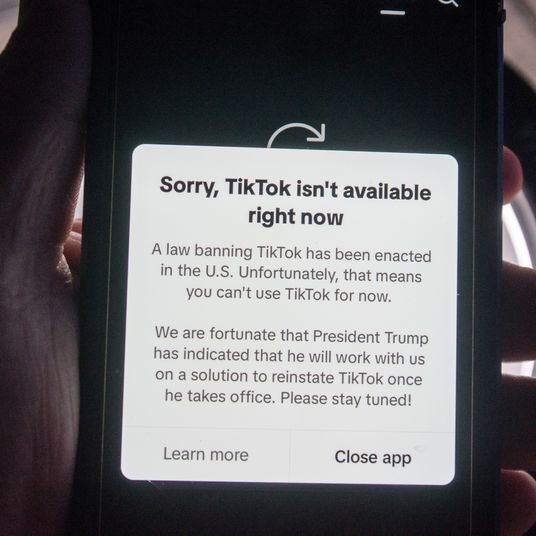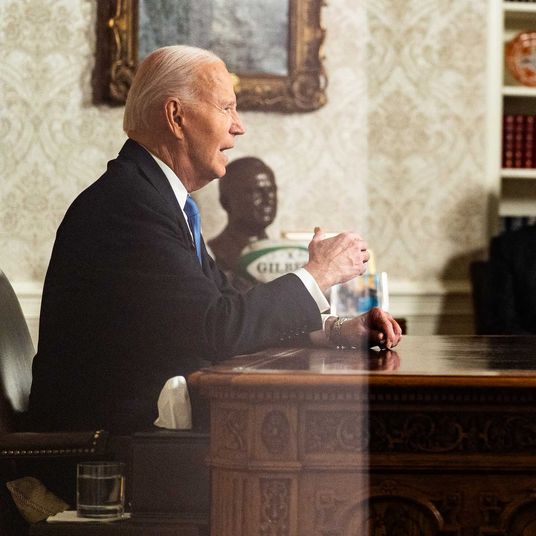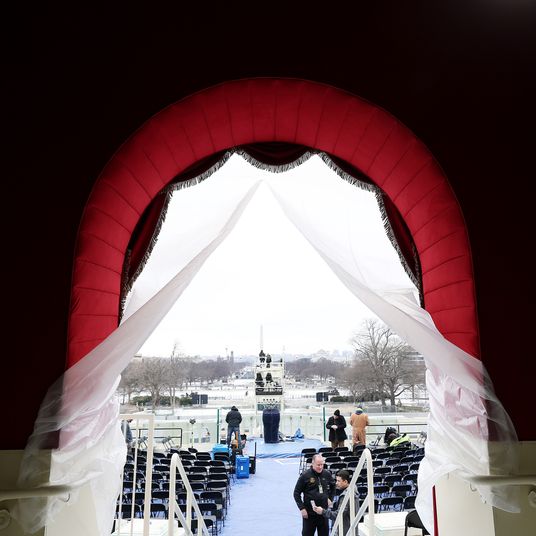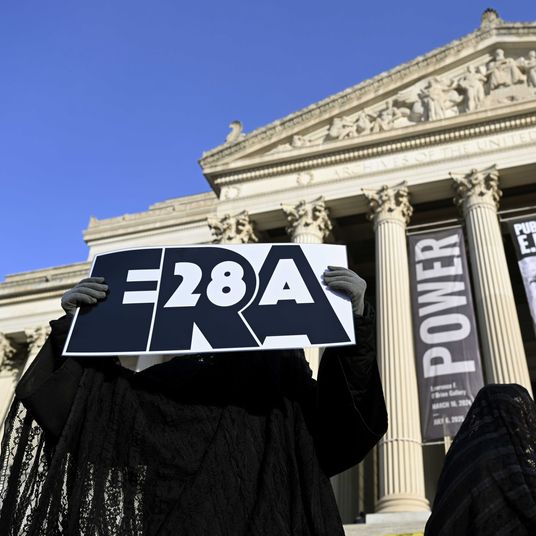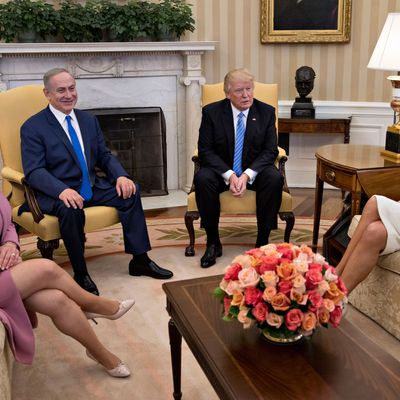
Breaking with decades of bipartisan consensus, President Trump announced Wednesday that the United States would not insist on a two-state solution to the Israel-Palestine conflict.
“I’m looking at two states and one state, and I like the one both parties like,” the president said at a join news conference with Israeli Prime Minister Benjamin Netanyahu. “I can live with either one.”
In the past, Netanyahu has expressed support for a two-state solution. But in recent years, he’s spoken more favorably of a “state minus” option — one that would provide Palestinians some limited form of autonomy while maintaining Israeli “security control” over the West Bank. Thus, Trump’s unprecedented openness to a peace agreement that denied Palestinian aspirations for sovereignty was (almost certainly) welcome news to Israel’s prime minister.
“Israel has no better ally than the United States, and I want to assure you the United States has no better ally than Israel,” Netanyahu said at the joint presser. “Our alliance has been remarkably strong, but under your leadership, I’m confident that we’ll get even stronger.”
Still, not everything the president said was music to Bibi’s ears. After abrading the Obama administration for allowing the United Nations to condemn Israeli settlement expansion, Trump has grown markedly less enthusiastic about the settler project since taking office.
“I’d like to see you pull back on settlements for a little bit,” Trump told Netanyahu in front of reporters, just before they sat down for talks. Reuters writes that Netanyahu “appeared startled” at this request.
The Israeli prime minister made no commitment to curb settlements, and explained that settlement expansion was “not the core of the conflict.” Rather, Netanyahu insisted that “Palestinian hate” was the central problem.
Palestinian leaders weren’t thrilled by these sentiments, nor by Trump’s refusal to insist on two states.
“If the Trump administration rejects this policy it would be destroying the chances for peace and undermining American interests, standing and credibility abroad,” Hanan Ashrawi, a senior member of the Palestine Liberation Organization, said in a statement. “Accommodating the most extreme and irresponsible elements in Israel and in the White House is no way to make responsible foreign policy.”
In the long run, it’s far from clear that the abandonment of the two-state solution would serve the interests of Zionist Israelis. Once the dream of two states for two peoples is forfeited, the choice will be between either a single state, where Jewish political control is secured via apartheid — or a single, democratic state, where Jews, in the long run, would be a minority.
Trump’s America may be comfortable abetting the first option. But tomorrow’s American electorate will be more multiracial, cosmopolitan, and — if current attitudes hold — sympathetic to the Palestinian cause than today’s is.
It is hard to imagine that the government they elect will be a reliable supporter of an undemocratic Greater Israel.






